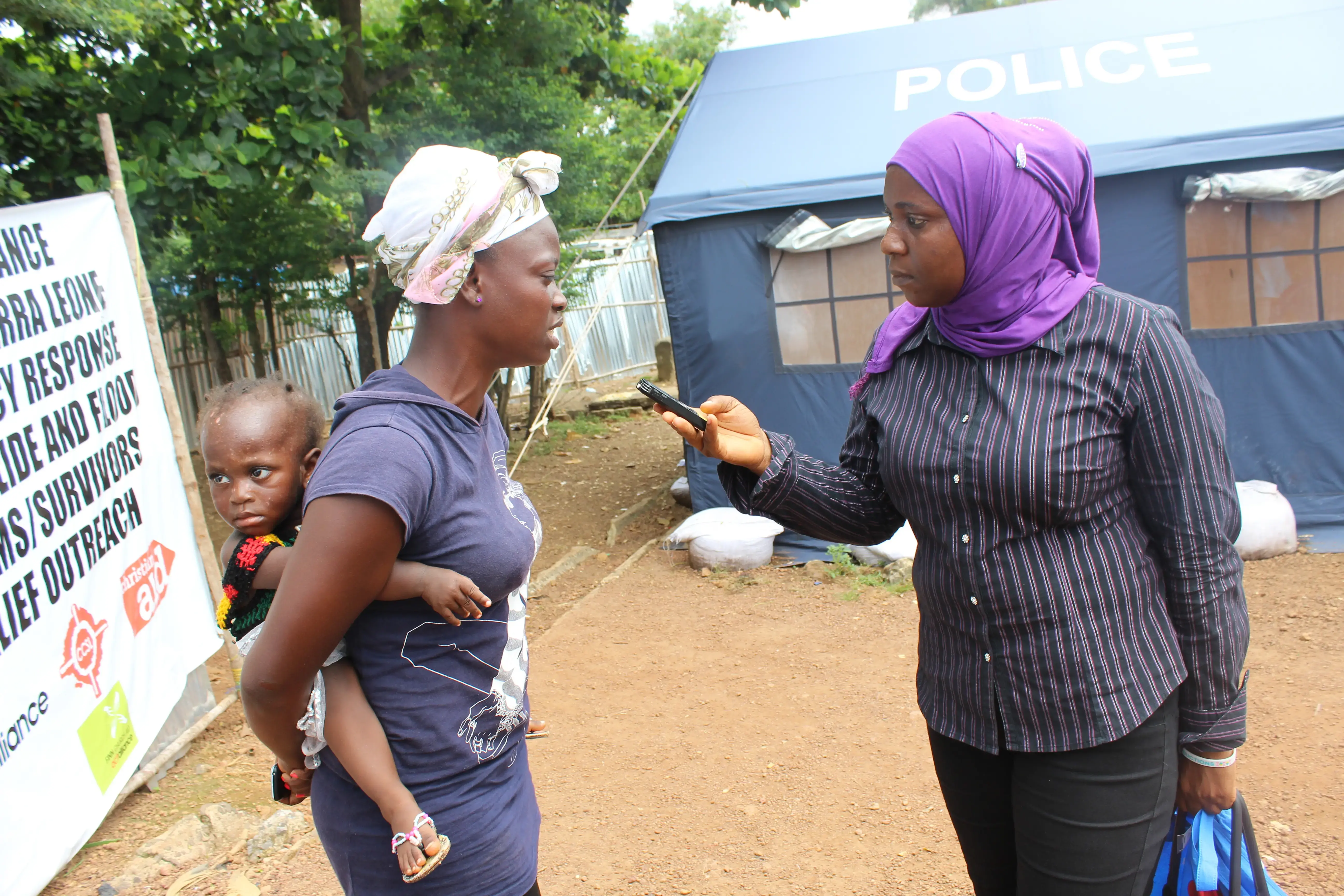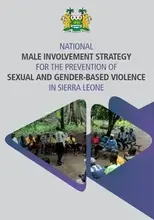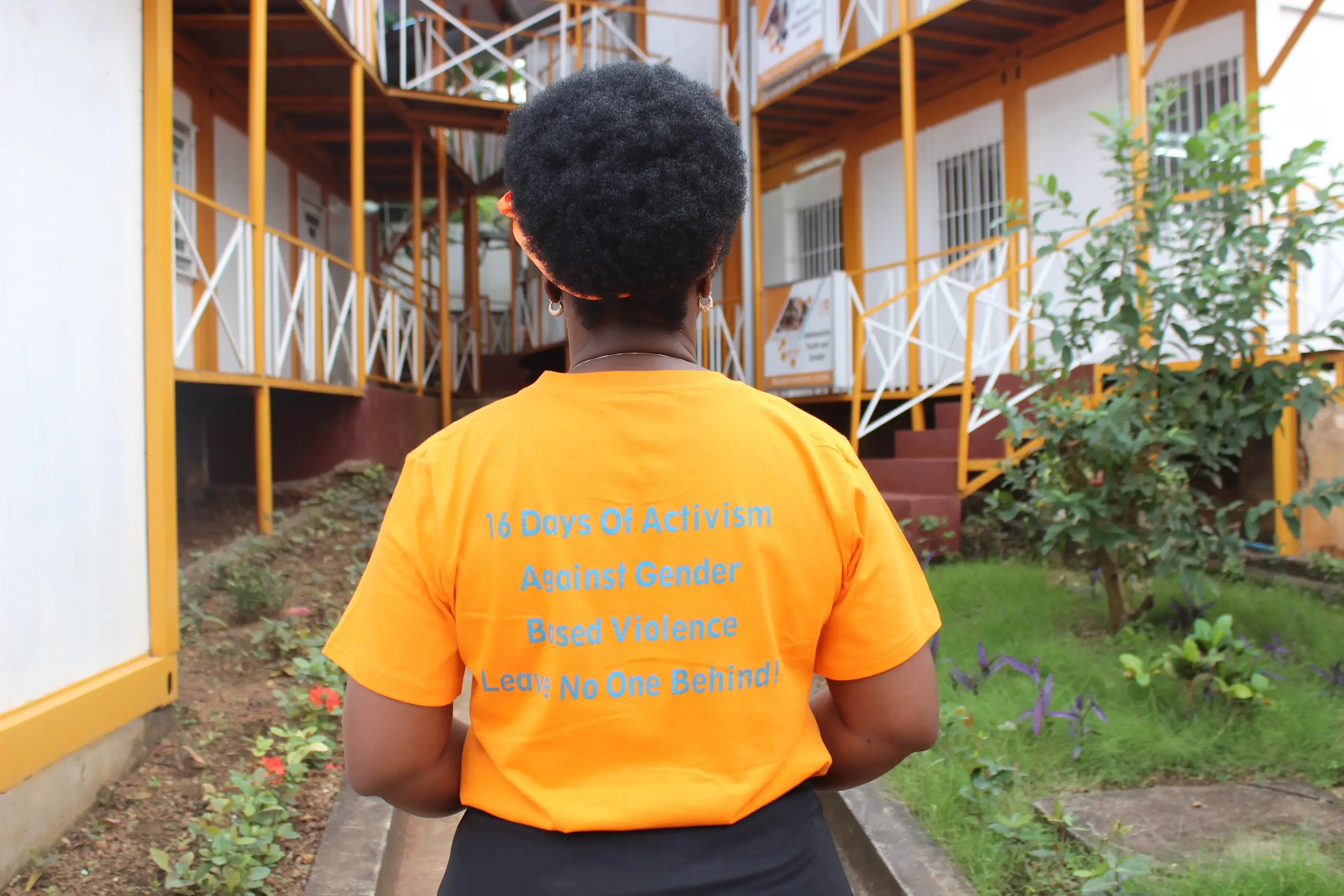Gender-based violence
Gender-based violence (GBV) is a serious and urgent concern. An estimated 62 per cent of women age 15–49 report having experienced physical or sexual violence, according to the 2019 SLDHS. With the onset of the COVID-19 pandemic, it was feared that the rates of GBV, which were already unacceptably high in Sierra Leone, would be exacerbated. Sixty one percent of ever-married women age 15-49 have experienced spousal violence whether physical, sexual or emotional by their husband or partner.
Ensuring the availability of gender-based violence prevention and response services
UNFPA supported the Ministry of Gender and Children’s Affairs to develop the first ever National Male Involvement Strategy for the Prevention of Sexual and Gender-Based Violence in Sierra Leone. The strategy was launched by His Excellency, the President of the Republic of Sierra Leone on International Women’s Dayin March 2020. The strategy seeks to accelerate the prevention of GBV by encouraging the participation of men and boys as change agents and champions of women’s and girls’ rights.
UNFPA also worked with development partners responding to the COVID-19 pandemic to update the Psychological First Aid Manual for the COVID-19 context. A new module was added to this version called ‘Women and girls affected by corona virus disease’. The manual was finalized and printed with technical and financial inputs from UNFPA and Irish Aid. Six hundred copies of the manual were printed and handed over to the Ministry of Social Welfare who led the roll-out of training of trainers and district level trainings in collaboration with UNICEF and NGOs.
Providing survivor-centred gender-based violence response services
In April 2020, The Ministry of Gender and Children’s Affairs, with the support of UNFPA and other partners, established a GBV 116 toll-free hotline to provide counselling and referral services to survivors of GBV. UNFPA ensures the availability of free counselling and clinical services to GBV survivors through the Government of Sierra Leone and the national NGO Rainbo Initiative, with funding from Irish Aid. These centres offer a comprehensive package of services of medical treatment, legal services and psychosocial support to both male and female survivors of GBV. In 2020, UNFPA-supported Rainbo Centres provided services to 1,426 survivors of GBV. Twelve of the survivors were people living with disabilities.
Furthermore, in 2020, UNFPA Sierra Leone supported the Government of Sierra Leone in establishing and operating Government One-Stop Centres, with the generous support of Irish Aid and the Government of China. The Government One-Stop Centres offer a comprehensive package of services including family planning commodities to survivors of GBV, and have reached 532 survivors.
Increasing the demand for sexual and reproductive health and gender-based violence services
The UNICEF-UNFPA Global Programme on Ending Child Marriage entered its second phase in 2020. A core component of this programme is working with men and boys to change attitudes, end harmful practices and support sexual and reproductive health and GBV services. By recognizing men and boys as part of the solution, the programme strives for changes in social norms.
UNFPA supported the national NGO Fambul Initiative Network for Equality Sierra Leone in orientating the Male Advocacy Peer Educator (MAPE) network. The network engages respected men in the community to promote ending child marriage in their communities. These MAPEs also increase demand for sexual and reproductive health and GBV services by discussing the referral pathways and the importance of ending harmful practices. The orientation trainings were held in three project district towns, Kambia, Koinadugu and Pujehun, reaching a total of 60 MAPEs.
With support from UNFPA, the trained MAPEs were provided with monitoring tools to help with community awareness-raising programmes and to also ensure the safety and protection of adolescent girls. Awareness-raising events were held in their own communities, amplifying the messages. As peers, living in the communities in which they are promoting their messages, they also act as focal points within the community to end child marriage, report violations, and promote sexual and reproductive health and GBV services.
Reaching vulnerable girls and women with dignity kits
UNFPA has been supporting the Government of Sierra Leone in coordinating and implementing an integrated humanitarian preparedness response to the COVID-19 pandemic. A key part of the response has been the provision of dignity kits containing sanitizers and masks to vulnerable groups. This was done in partnership with key partners, Irish Aid, the Government and other NGOs and youth groups. In 2020, UNFPA disseminated 26,724 dignity kits to vulnerable groups including adolescent girls and girls with disabilities.
Risk communications and community engagement
In 2020, with support from Irish Aid, the Global Programme to End Child Marriage and core funds, UNFPA conducted a campaign to ensure that people were aware of the continuity of GBV, family planning and maternal health services throughout the pandemic. Messaging on keeping safe during the coronavirus pandemic were included. The campaign was first rolled out in Freetown through radio, pre-recorded calls, SMS and social media platforms. The telephone calls and SMS targeted all 645,000 active Africell subscribers in Freetown with messages on these thematic areas. The SMS messaging campaign was then rolled out nationally in September, targeting all 3.9 million subscribers on the Africell network in Sierra Leone. Radio jingles with key messages on maternal health, family planning and GBV were aired on 16 radio stations nationwide at strategic points throughout the year as part of the ’16 days of activism against gender-based violence’ and other themes.





